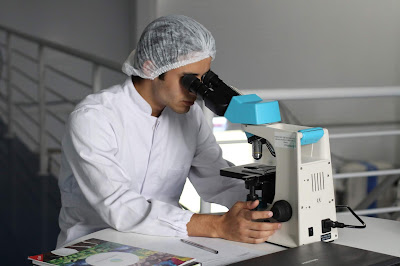 Chemistry is interested in the entire material world, but slightly different from physics (see the "Physical and chemical phenomena" chart). Chemistry is interested in the substances from which the material world is built, and the transformation of one substance into another. However, it is not interested in the external form of material objects or their construction. The subject of chemists' interest is iron as a substance, but it is basically indifferent to what will be made of iron: nails, tanker, pipe or wire. So the subject of chemistry's interest are the substances and transformations that they are subject to.
Chemistry is interested in the entire material world, but slightly different from physics (see the "Physical and chemical phenomena" chart). Chemistry is interested in the substances from which the material world is built, and the transformation of one substance into another. However, it is not interested in the external form of material objects or their construction. The subject of chemists' interest is iron as a substance, but it is basically indifferent to what will be made of iron: nails, tanker, pipe or wire. So the subject of chemistry's interest are the substances and transformations that they are subject to.Iron rusts - a yellow - brown powder forms from a strong nail. Some substances form different substances with completely different physical properties.
Another metal and other substance, for example copper. It is made primarily of various types of electric wires, but also sheet metal to cover cathedrals or other old and important buildings. Over time, these roofs change color. They overlap with a green patina, resembling a malachite mineral, from which copper was once obtained.
Cement mixed with water and sand creates a dough mass, which in time turns into hard concrete, resembling stone. It forms a completely different material with completely different properties. From the point of view of chemistry, it is not important what we will create from this concrete: flagstone, foundation of the house or pillar of the bridge.
Chemistry can explain why some substances change, and others - for example gold - do not change for millennia. By searching for the same substances in different objects and paying attention to the changes they undergo or can undergo, you will quickly understand what chemistry is doing.
The time has come for you to do your first chemical experiment and start thinking like a chemist.
Go to the kitchen and light the gas under the kettle with water on the gas stove.
I think that you have done these activities - which I have called experience - many times. If it were not so and Mama would not allow you to touch the matches in the kitchen at all, then ask that you could do it under her supervision. It is possible that I have exaggerated a bit here, but accept as a rule:
Every chemical experience - even the simplest one - that you do for the first time, you must always carry out under the supervision of a better chemist or parents.




0 Comments